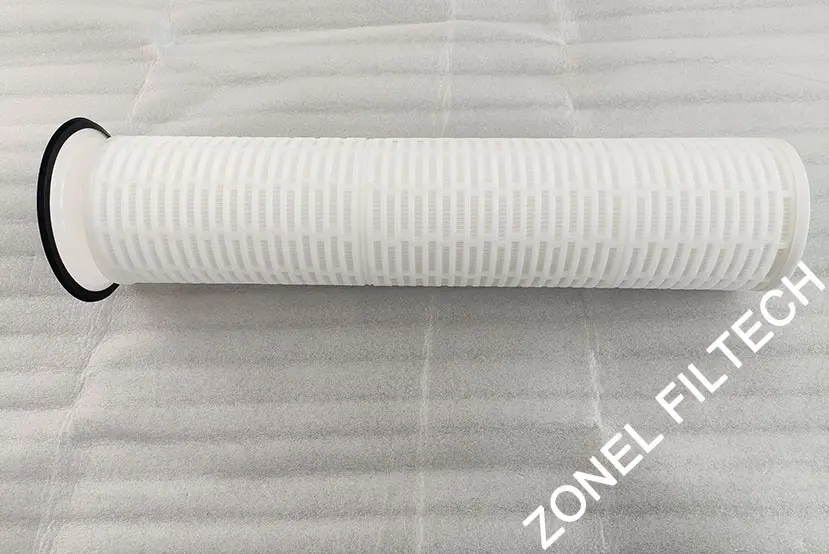In industrial settings, effective air filtration is essential for maintaining clean and safe working environments, complying with environmental regulations, and preserving the integrity of equipment. Industrial bag filters and industrial cartridge filters are two widely used filtration solutions that play crucial roles in capturing airborne contaminants. Although both fulfill a similar purpose, they diverge in terms of design, functionality, and appropriateness for different applications. In this article, we’ll explore the differences between industrial bag filters and industrial cartridge filters, highlighting their features, advantages, and best applications.

Table of Contents
ToggleIndustrial Bag Filters:
Industrial bag filters, commonly referred to as baghouses or fabric filters, are adaptable air pollution control systems engineered to capture particulate matter from industrial gas streams. They comprise a collection of fabric bags housed within a compartmentalized structure. As contaminated air traverses through these fabric bags, solid particles are ensnared on the surface, allowing clean air to exit the system.
Components and Operation:
- Fabric Bags: The fabric bags utilized in industrial bag filters are commonly crafted from durable materials such as polyester, polypropylene, or fiberglass. These materials are selected based on their resilience, ability to withstand chemical corrosion, and effectiveness infiltration.
- Housing Structure: The housing structure of industrial bag filters is usually made of steel or concrete, providing support for the fabric bags and ensuring proper airflow distribution.
- Cleaning Mechanisms: Industrial bag filters employ various cleaning mechanisms to remove accumulated dust from the fabric bags. Common methods include mechanical shaking, reverse air flow, and pulse jet cleaning.
Advantages of Bag Filters:
- High Filtration Efficiency: Industrial bag filters can achieve high filtration efficiencies, typically ranging from 99% to 99.9%, depending on the application and design.
- Versatility: They are suitable for a wide range of industries and applications, including cement production, power generation, metal smelting, and woodworking.
- Cost-Effectiveness: Industrial bag filters are often more cost-effective than other air pollution control devices, both in terms of initial investment and ongoing maintenance.
Applications of Bag Filters:
- Cement production: Capturing cement dust generated during manufacturing processes.
- Power generation: Removing fly ash and other pollutants from flue gas emissions.
- Metal processing: Controlling emissions from smelting and refining operations.
- Woodworking: Gathering wood dust and particles generated during sawing, sanding, and shaping operations.

Industrial Cartridge Filters:
Industrial cartridge filters, also known as cartridge dust collectors, are compact filtration systems designed for capturing dust and particulate matter from industrial processes. Unlike bag filters, which use fabric bags, cartridge filters utilize cylindrical cartridges made of pleated filter media.
These cartridges provide a larger filtration surface area within a compact footprint, making them well-suited for environments with limited space.
Components and Operation:
- Cartridge Filters: Industrial cartridge filters consist of cylindrical cartridges made of pleated filter media, such as cellulose, polyester, or synthetic fibers. The pleated design enhances the filtration surface area, facilitating efficient particle capture.
- Housing Structure: The housing structure of industrial cartridge filters is typically constructed from steel or aluminum, providing support for the cartridge filters and facilitating airflow through the system.
- Cleaning Mechanisms: Cartridge filters employ various cleaning mechanisms, including pulse jet cleaning, reverse airflow, and manual cleaning, to remove dust buildup from the filter cartridges.
Advantages of Cartridge Filters:
- Compact Design: Industrial cartridge filters offer a compact design with a smaller footprint than bag filters, making them suitable for installations with limited space.
- Easy Maintenance: Cartridge filters are relatively easy to maintain, with cartridge replacement being straightforward and requiring minimal downtime.
- High Filtration Efficiency: They can achieve high filtration efficiencies, comparable to bag filters, depending on the cartridge material and design.
Applications of Cartridge Filters:
- Welding and metal fabrication: Capturing welding fumes, metal dust, and particulate matter generated during metalworking processes.
- Pharmaceutical manufacturing: Controlling airborne contaminants in tablet pressing, coating, and packaging operations.
- Food processing: Removing dust, flour, and other food particles from processing and packaging areas.
- Automotive manufacturing: Collecting dust and particulate matter from painting, sanding, and machining operations.
Comparison:
Aspect | Industrial Bag Filters | Industrial Cartridge Filters |
Design | Fabric bags arranged in compartments within a housing | Cylindrical cartridges made of pleated filter media |
Filtration Surface Area | Typically lower compared to cartridge filters | Higher due to pleated design of cartridges |
Footprint | Larger due to the design with fabric bags | Smaller due to compact cylindrical cartridges |
Maintenance | Requires periodic shaking or pulse jet cleaning | Typically easier maintenance with cartridge replacement |
Efficiency | High filtration efficiency, typically 99% to 99.9% | Comparable to bag filters depending on cartridge material |
Applications | Widely used in cement production, power generation, metal smelting, woodworking, etc. | Commonly used in welding, pharmaceutical manufacturing, food processing, automotive manufacturing, etc. |
Industrial bag filters and industrial cartridge filters offer similar filtration capabilities but differ in several key aspects:
- Design: Bag filters use fabric bags arranged in compartments, while cartridge filters use cylindrical cartridges made of pleated filter media.
- Size and Footprint: Cartridge filters have a smaller footprint and are more compact than bag filters, making them suitable for installations with limited space.
- Maintenance: Cartridge filters generally require less maintenance and downtime compared to bag filters, as cartridge replacement is easier and quicker.
- Applications: Bag filters are versatile and suitable for a wide range of industrial applications, while cartridge filters are ideal for space-constrained environments and specific applications requiring compact filtration systems.
Industrial bag filters and industrial cartridge filters are both effective air filtration solutions used across various industries to capture dust and particulate matter. Comprehending the distinctions between these filtration systems is pivotal in choosing the optimal option for particular industrial applications, considering factors like space availability, maintenance demands, filtration efficiency, and cost-effectiveness. By choosing the right filtration solution, industrial facilities can ensure clean and safe working environments, comply with environmental regulations, and prolong the lifespan of equipment.
